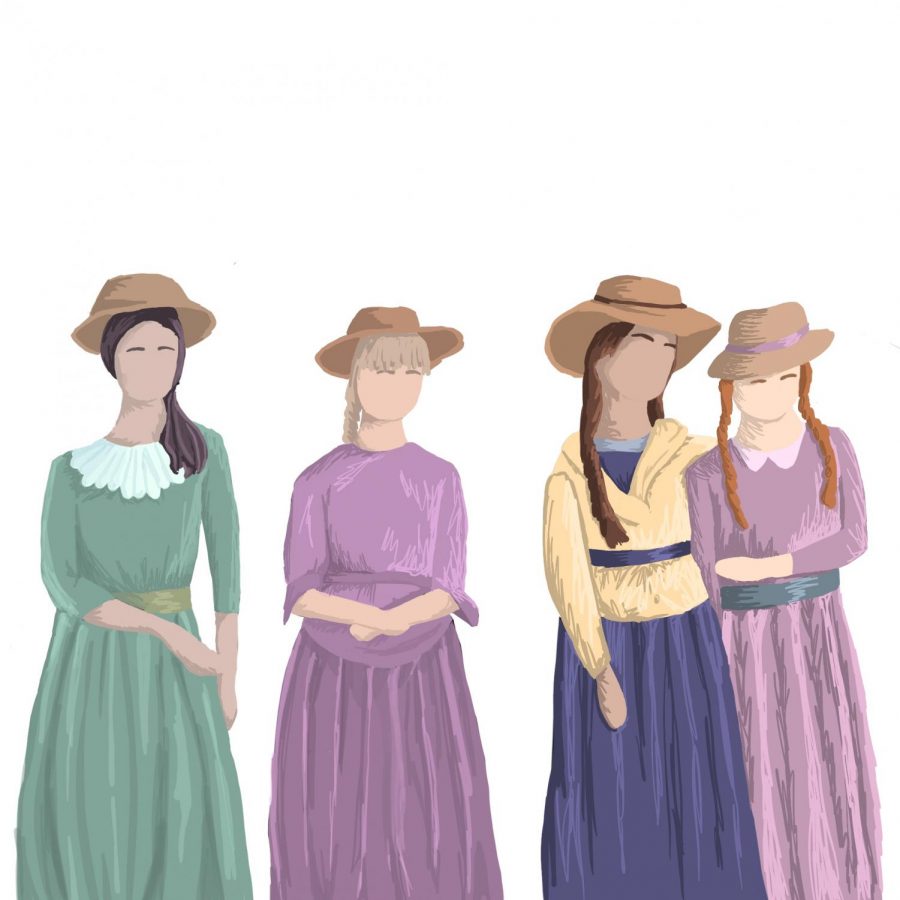“Little Women”: A Story of Feminism and Friendship
Adapting this Classic to Film, Greta Gerwig Incorporates History Not Included in Novel
February 20, 2020
Greta Gerwig’s spin on the classic tale of Little Women, first penned by Louisa May Alcott in 1868, is both timeless and poignant. The film covers themes such as the obligation of marriage, women in the working world, and economic inequality, with a star-studded cast and glowing cinematography showcased in 35mm film.
Gerwig’s creation is eloquently feminist, making audiences question how much society has truly achieved, even through modern feminism. Early in the film, Jo March (Saoirse Ronan), the protagonist, befriends a wealthy neighbor’s grandson, Theodore “Laurie” Laurence (Timothée Chalamet). As the two grow up, it is somewhat expected that they will marry. However, Jo never intends to marry, saying she’d rather keep her liberty and die a spinster, an ideal that was socially unacceptable in 1868, and is, for the most part, socially unacceptable today. Elsewhere in the film, Jo’s younger sister Amy (Florence Pugh), proclaims marriage to be “an economic proposition,” especially since there were few ways for women to earn their own money in the 19th century.
Saoirse Ronan—who played a similarly determined young woman in “Ladybird,” also directed by Greta Gerwig—plays Jo March as an independent, fiery, and insatiable storyteller. Jo captures the heart of any woman, young or old, for her blatant disregard of the expectations placed upon her. Saoirse Ronan’s portrayal of Jo is deftly played; there is a certain windswept nature to her spirit which so perfectly suits Jo March.
While Greta Gerwig dutifully carries through the messages and themes of Little Women, she made a point before production of the film to carry out dedicated research on Louisa May Alcott’s life, upon which the story of Little Women is based. She studied Little Women-era paintings of Concord, Massachusetts, where Alcott’s house is, and sought to recreate the golden glow of childhood. Over time, as the sisters grow older, the film notably loses this feeling. Gerwig comments, “It’s not cold, but it’s less magical.” Gerwig based her film on the novel, of course, but also on Alcott’s private letters and other books. This research was done in order to emphasize the feminist themes which are more apparent in Gerwig’s film than in other adaptations of Little Women.
Gerwig’s extensive research and artful vision shine in her production. The film evokes a sense of nostalgia for those who looked up to the March sisters as young children and those who remember the luminescence of childhood, and the subsequent bittersweet journey to adolescence and adulthood. The film was released at a fitting time; it is a refreshing renewal of an age-old tale, which comes to us in the face of uncertainty in our society. Little Women, whether you have read the story or not, feels like an old friend. A beautiful story that will pull at your heartstrings, making you laugh while dabbing your eyes, Little Women is a film not to be missed; it is a winsome tale for anyone of any age.
This piece also appears in our January 2020 print edition.











